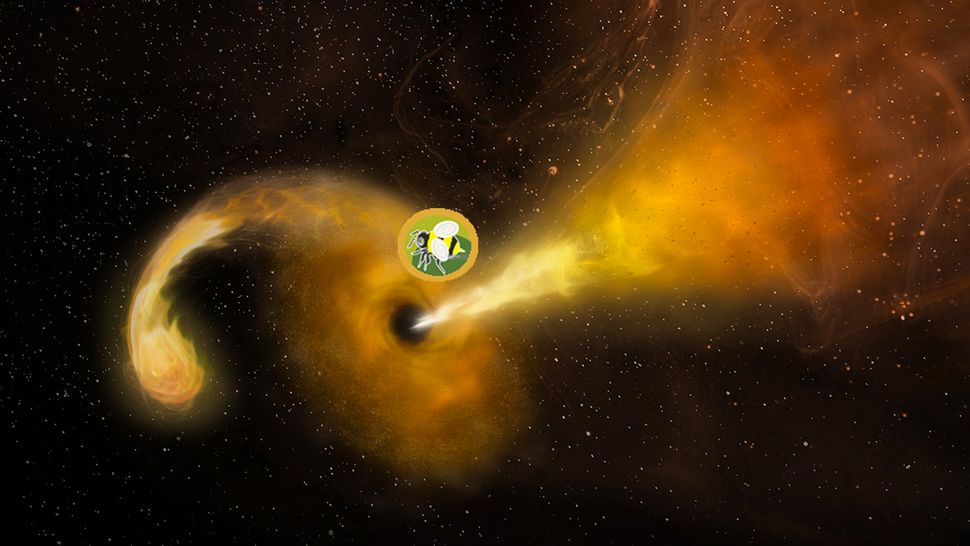‘Bumblebee Gravity’ could Explain Why the Universe is Expanding so Quickly
By Paul Sutter | AstrophysicistJanuary 13, 2021 | Physicists have long assumed that the universe is pretty much the same in any direction, and now they’ve found a new way to test that hypothesis: by examining the shadow of a black hole.
If that shadow is a wee bit smaller than existing physics theories predict, it could help prove a far-out notion called bumblebee gravity, which describes what would happen if the seemingly perfect symmetry of the universe isn’t so perfect after all.
Bumblebee gravity could be proven true if scientists find that a black hole whose shadow is smaller than existing physics theories would predict.
(Image: © Sophia Dagnello, NRAO/AUI/NSF (black hole); Imagezoo via Getty Images (bumblebee))If scientists can find a black hole with such an undersized shadow, it would open the door to a brand-new understanding of gravity — and perhaps explain why the universe is expanding ever faster.
But to understand how this bumblebee idea could fly, let’s dig into some fundamental physics.
MORE:
Looking in the mirror
Bumblebee gravity
The black shadow
